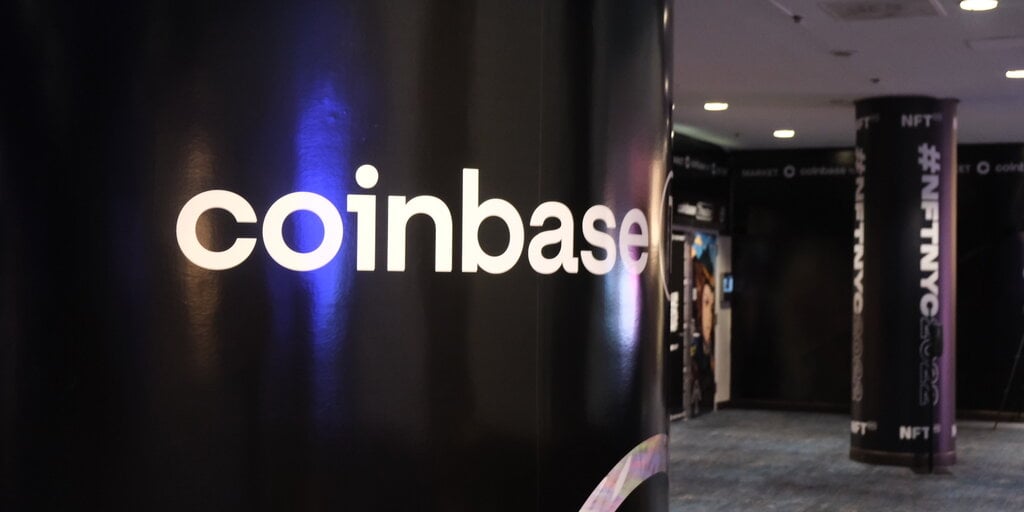Alongside Bitcoin’s brief jump past $100,000 last week, heightened volatility in the asset’s price and an altcoin boom are driving retail traders back to Coinbase, according to one analyst.
In a Monday note, investment bank and asset management firm Needham & Co.’s John Todaro issued a new price target for Coinbase, raising the key mark to $420 from $375 while maintaining a “buy” rating. In the note, the equity analyst pointed to Coinbase’s December trading volumes, which “are on track for their best month ever.”
In October, Coinbase disclosed $183 billion in total trading volume for Q3, an 18% drop quarter-over-quarter. The San Francisco-based firm attributed the stat to a tepid Bitcoin market, trading below its March high of $73,800, and unfavorable economic conditions this summer.
In his note, Todaro penciled in higher expectations for Coinbase’s total trading volume in Q4, lifting his estimate to $435 billion from $243 billion. If proven true, that would equate to a 137% increase in total trading volume within the span of just three months.
The ratio between Bitcoin’s market cap and the crypto market’s entire value is telling of retail traders’ return to the industry, according to Todaro.
Also known as Bitcoin’s dominance, the figure has fallen from 59% last month to 51%, CoinGecko data shows.
That stat could fall as low as 45%, per Todaro’s note. However, he warned that Bitcoin’s declining dominance is a “tell-tale sign” of euphoria often preceding a market crash.
The meme coin effect
Spot Bitcoin ETFs, approved earlier this year, make getting Bitcoin exposure as easy as a few clicks in one’s brokerage account. While the products also exist for Ethereum, Todaro wrote that altcoins make Coinbase unique from the perspective of asset listings.
“Given the variety of platforms that offer Bitcoin for trading, we believe altcoin activity is the key to COIN’s success and volume growth in 2025,” Todaro wrote.
Among assets added to Coinbase’s so-called listing roadmap, meme coins have recently been in vogue. The firm has signaled its plans to list Gigachad (GIGA), Turbo (TURBO), Mog Coin (MOG), and Moo Deng (MOODENG)—among its roster of 267 digital assets—this month alone.
Per Todaro’s note, Coinbase’s best month of trading volumes occurred in May 2021. Covering that month in its Q2 2021 financials, Coinbase disclosed $1.9 billion in transaction revenue on $462 billion in total trading volume, per a Securities and Exchange Commission (SEC) filing.
Though Coinbase has sought to diversify its revenue since its Nasdaq listing, its main money maker remains fees charged on users’ transactions. For example, Coinbase’s total transaction revenue for Q3 clocked in at $572 million, while Coinbase’s revenue from subscriptions and services came in at $556 million, according to an SEC filing.
“Oftentimes, trading is correlated very much with volatility,” Coinbase CFO Alesia Haas said during Coinbase’s latest earnings conference. “Crypto asset volatility came down in Q3 as compared to Q2, and so we did see a little bit of that volume shift.”
So, how volatile has Bitcoin’s price been lately?
The Bitcoin Volatility Index, which measures the volatility of BTC over the past 30 days in U.S. dollars, climbed as high as 2.44% in November—notably below this year’s peak of 3.25% in August.
So far this year, Coinbase’s share price has nearly doubled, with its stock trading hands at $310.52 as of Monday’s close. Since Donald Trump’s White House win, Coinbase’s shares have rallied 60% from $194, surging amid hopes and promises of a crypto-friendly administration under the President-elect.
Late last month, Oppenheimer analyst Owen Lau raised his price target for Coinbase shares to $358 from $265, pointing to surging trading volumes and regulatory clarity expected to come under Trump. In the note, he foresaw the firm’s total trading volume reaching $350 billion in Q4.
“The sentiment and momentum for crypto has gone through the roof after Trump won the election and Republicans secured the majority of both House and Senate,” Lau wrote. “We expect high trading volume to sustain under Trump’s crypto policy.”
Edited by Sebastian Sinclair

